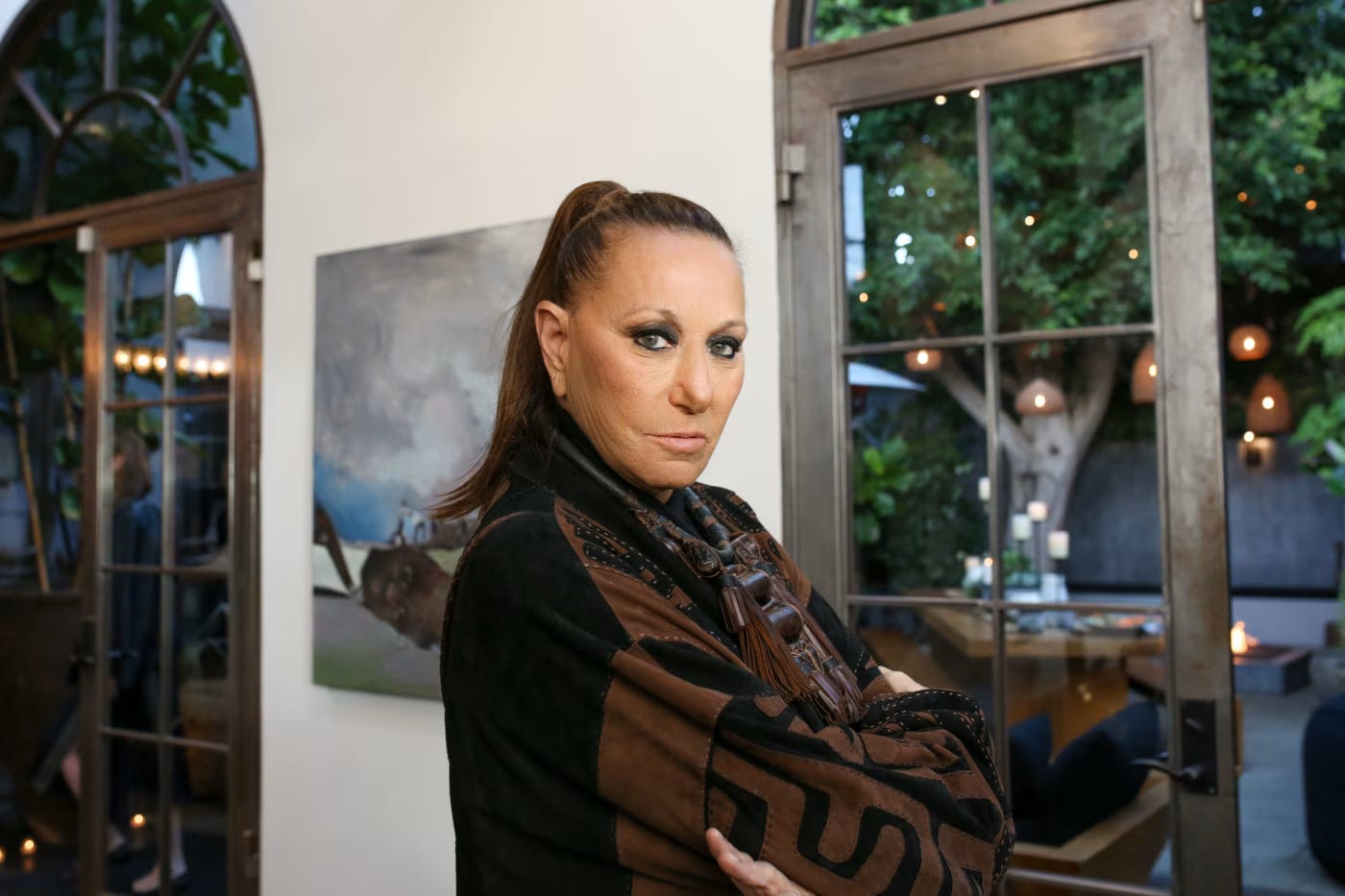Earn Your Luck: Donna Karan Wants to Solve Your Body Issues
The designer who prioritizes comfort on the perils of fast fashion, why you shouldn’t think too hard about your outfits and the one body part you should never cover up.

Though tricky to confirm, Donna Karan is almost certain she’s improved the sex lives of her customers. Her essential pieces prize comfort and confidence over constrictive patterns, putting men and women at ease with their body and look. And because she tries on all her creations herself (and, as she freely admits, doesn’t wear a bra), most of her colleagues have seen her topless at some point. At times forgetting she was half-naked when someone popped into her office, she’d simply ask, “Yes? What do you need?”
Karan’s authority blossomed early when she became the head designer of Anne Klein at age 25. It didn’t hurt that she’d grown up on Seventh Avenue (both parents worked in fashion; as a girl she watched the Thanksgiving parade from her father’s second-floor office at Macy’s). In 1985, then 36, she launched her own company, Donna Karan New York, with seven pieces that moved gracefully from day to night, from work to socializing. For women, this meant bodysuits, wrap-and-tie skirts, tailored jackets, suede wrap jackets and camel coats. For men (after the launch of DK Men in 1992), black crepe suits, sportswear, knit T-shirts, tailored trenches and cashmere sweaters that Karan knew “women would steal.”
In 2001, Karan sold the company to LVMH and stayed on as chief designer until 2015. Now she’s focusing her energy on Urban Zen, a lifestyle brand she founded in 2007 that combines fashion, accessories, home décor and wellness. (Its integrative-health initiative is a legacy of the cancer treatments Karan’s husband, Stephan Weiss, received before his death in 2001; toward the end of his life, Karan performed Reiki on him every day.)
The designer isn’t shy about her spirituality. While reviewing documents for the sale of DKNY, she told the assembled group that Mercury was in retrograde—a terrible time to enter into any contract—and that they should put it off. Having none of it, her lawyer urged her to sign, saying, “This is the best f—ing deal I’ve seen in my whole career.”


